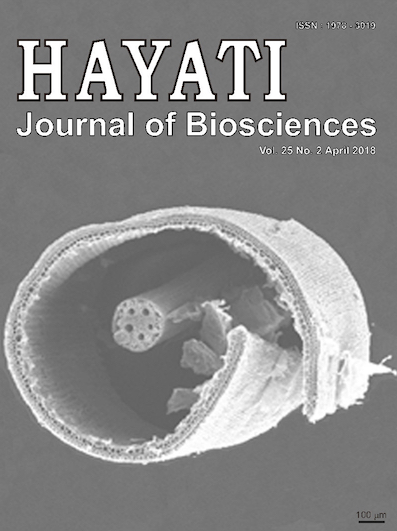Growth Performance of Black Soldier Fly Larvae (Hermetia illucens) Fed on Some Plant Based Organic Wastes
Abstract
Insect larvae, such as black soldier fly larvae (BSFL: Hermetia illucens) are currently being considered as an alternative source of protein for poultry and aquaculture industry while in the same time apply as agent to manage organic wastes. In order to achieve both roles it is necessary to develop an appropriate farming methodology and understand the impact of different feeding source for the insect production. The study explored the effect of three local plant based organic wastes as feedstocks to growth of the black soldier fly larvae. Separate feeding trials on horse manure (HM), vegetable wastes (VW), and tofu dreg (TD) was done and their effect on BSF larvae growth rate, larvae weight and total prepupal yield in grams content analysed. The efficiency of the BSF larvae to consume and ability to reduce the waste load of the different substrates was also evaluated. The result showed all materials suitable as feeding material for black soldier fly. Difference on physical properties and chemical content affected the development time, harvested biomass, efficiency of digestivity, and efficiency of biomass production which is unique for each type of waste. This study provide base line information for future development of plant based organic waste management.Downloads
HAYATI J Biosci is an open access journal and the article's license is CC-BY-NC. This license lets others distribute, remix, tweak, and build upon author's work, as long as they credit the original creation. Authors retain copyright and grant the journal/publisher non exclusive publishing rights with the work simultaneously licensed under a https://creativecommons.org/

























.png) IPB University
IPB University Department of Biology
Department of Biology The Indonesian Biological Society
The Indonesian Biological Society 

